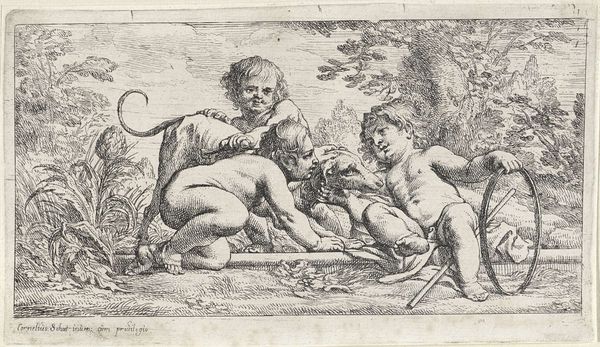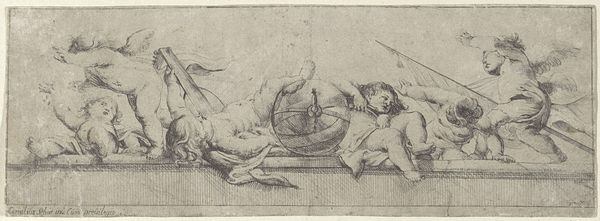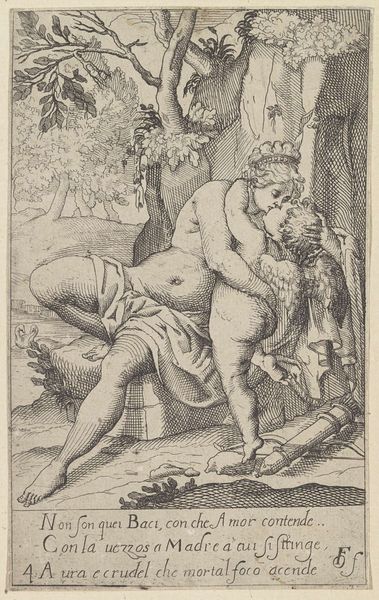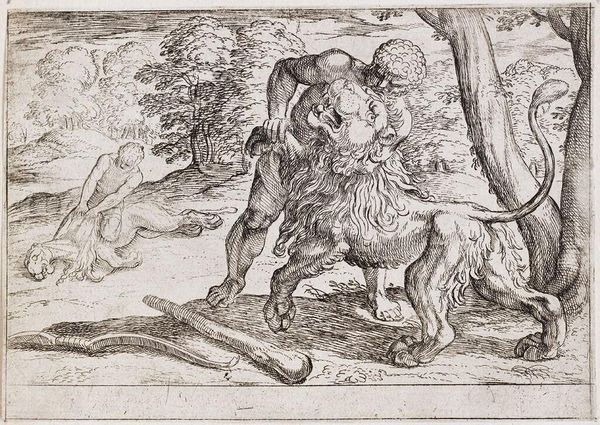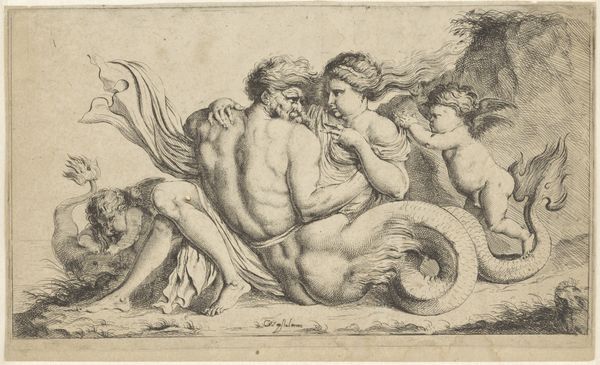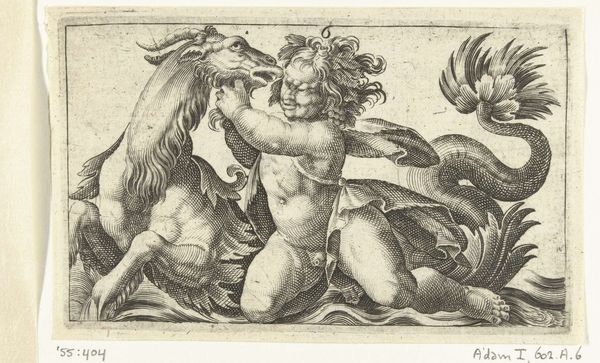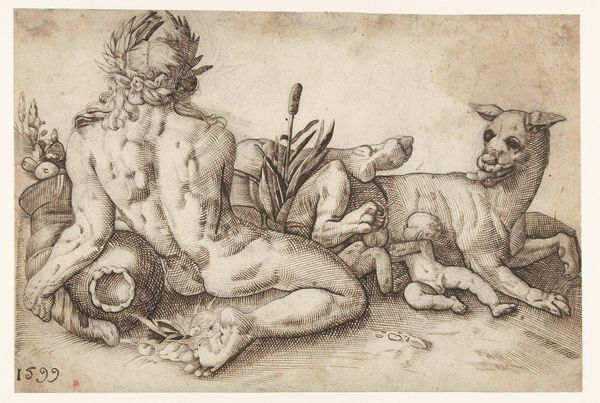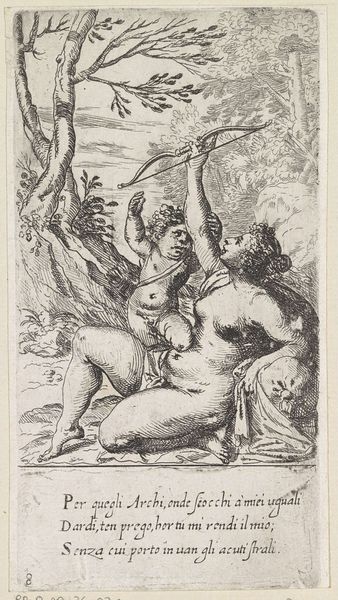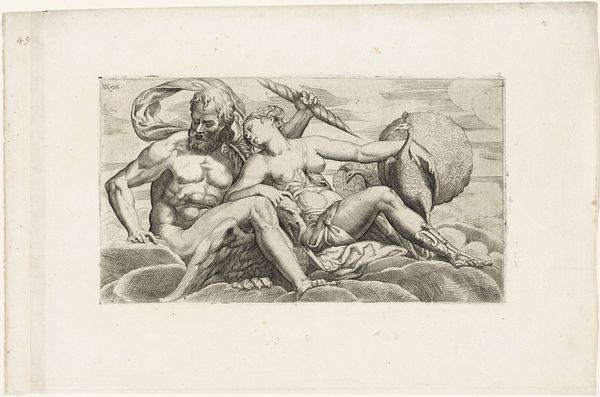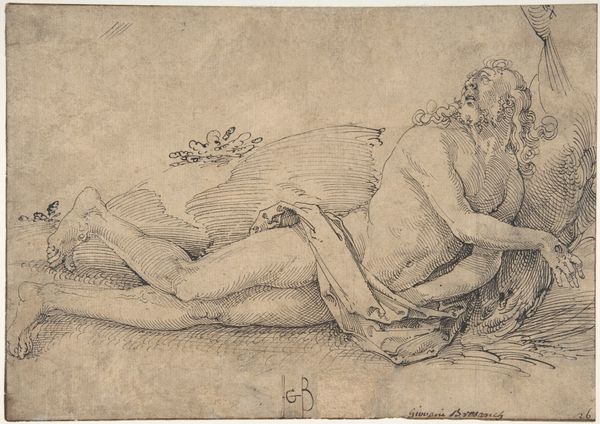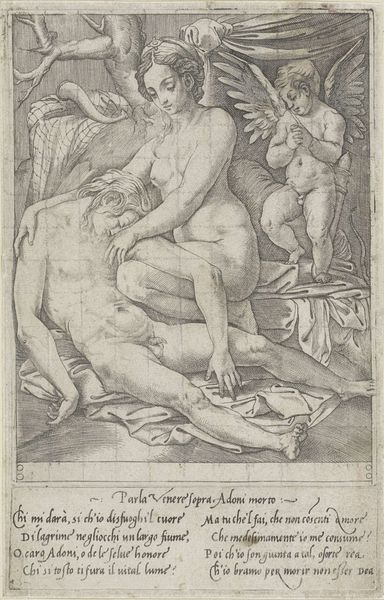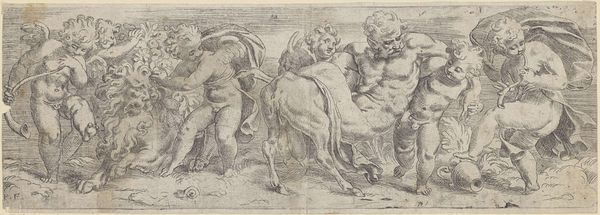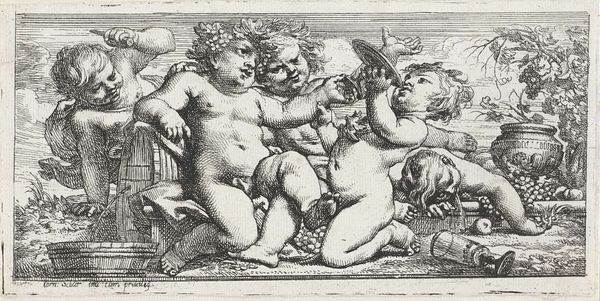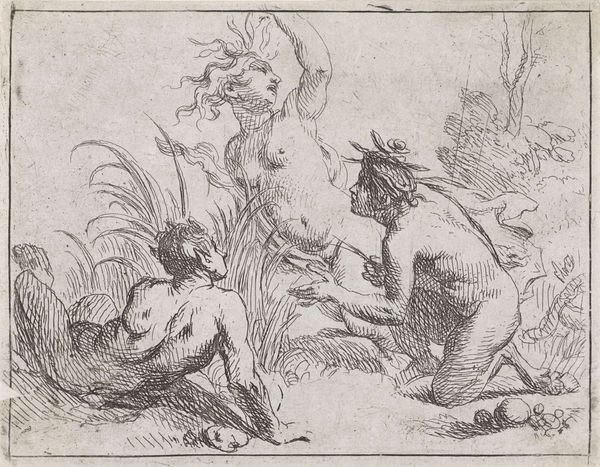
print, engraving
# print
#
figuration
#
11_renaissance
#
mythology
#
italian-renaissance
#
nude
#
engraving
#
erotic-art
Dimensions: height 134 mm, width 188 mm
Copyright: Rijks Museum: Open Domain
Editor: Here we have Jacopo de' Barbari’s engraving, "Triton en Nereïde in omhelzing," created between 1501 and 1506. It's a strikingly intimate portrayal of a mythological couple, but there’s also something unsettling about the power dynamics at play. What do you see in this piece? Curator: What strikes me is the deliberate, even clinical, way Barbari presents this encounter. The cold precision of the engraving highlights the constructed nature of these mythological figures. In a patriarchal society undergoing rapid change, representations of male dominance and female submission were common; do you see echoes of this dynamic here? Editor: Absolutely. Triton, with his trident, has a powerful, almost aggressive presence, while the Nereid seems more passive, accepting his embrace. It raises questions about female agency and the male gaze, even in this classical context. Curator: Precisely. And let’s consider the Renaissance fascination with classical mythology itself. It wasn't simply about aesthetic appreciation; it was about legitimizing contemporary social hierarchies through allegorical narratives. Myth provided a smokescreen for exploring contemporary anxieties surrounding gender, power, and sexuality. How does situating this piece within the context of other visual and written portrayals of Triton and Nereids shift your perspective on its meaning? Editor: It emphasizes how pervasive these themes were, reinforcing established roles and expectations. It makes me wonder about the audiences consuming these images and how they might have internalized those messages. Curator: Indeed. It's a reminder that art, even seemingly innocent mythological scenes, is always implicated in the complex web of social and political power. Understanding these dynamics allows us to unpack the enduring legacies of inequality and consider the work needed to address them. Editor: I’ll definitely view similar works with a more critical eye moving forward.
Comments
No comments
Be the first to comment and join the conversation on the ultimate creative platform.
